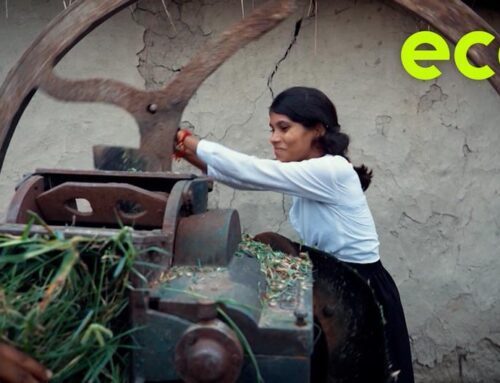Organigram upgrades lighting, premier ponders adding cannabis to interprovincial trade dea
November 26, 2025
Listen to this article
Estimated 3 minutes
The audio version of this article is generated by text-to-speech, a technology based on artificial intelligence.
Organigram Global’s Moncton location is getting a $9.3 million lighting upgrade for its 75 cannabis grow rooms, prompting discussion around including cannabis in the new interprovincial trade agreement.
“The investment will get us over 100 million grams at this facility this year,” said Matthew Carreau, Organigram’s vice-president of operations for Eastern Canada.
“It’ll be a record for the facility.”
The new, higher intensity LED lights will increase Organigram’s crop yield by an estimated 10 per cent, he said.
The Moncton-based company with 75 grow rooms plans to upgrade 9,000 lights to LEDs to increase flower output.
All 75 rooms, which each have more than 800 plants, have been upgraded, said Carreau, and it will take around 63 days to harvest those rooms.
“Then we’ll have the data to support the increase in 10 per cent.”
Carreau says the change will add about $60,000 to Organigram’s N.B. Power bill — a small drop in the bucket for a company using $1 million in electricity per month.
Province says investment will increase GDP
On Wednesday, New Brunswick Premier Susan Holt was at Organigram for a tour of the labs and to announce an additional $2 million contribution from the government through Opportunities N.B.
“We expect that investment to return by increasing the GDP of the province by $3.37 million by the end of 2026,” she said. “A good investment in my books.”
When asked by reporters, Holt said that she’s having discussions about whether cannabis could be included in the new interprovincial trade agreement. That agreement was announced earlier in November amid ongoing trade tensions with the United States.

“It can still be included,” Holt said. “These are conversations that I had been having with the former minister of transportation Chrystia Freeland about some of the pieces that we wanted to see align, in terms of a single excise stamp and changed interprovincial barriers.”
Carreau said that would benefit Organigram, since the majority of its business is outside of New Brunswick.
“Our biggest market is actually Ontario and then Alberta, B.C. and then we have a high market share here in New Brunswick,” he said. “Having that ability to sell across borders without that additional tax would allow us to be more profitable.”
From legalization to a legitimate industry
Organigram employs more than 700 New Brunswickers at its Moncton facility, and Carreau says that number will only grow in the coming years.
Organigram also exports medical marijuana products to other countries, including Australia and Germany. Carreau said that focusing on cannabis exports can help shift Canada away from trade south of the border.

“In an uncertain economic landscape, legal cannabis remains a rare growth industry that does not depend on the United States,” he said.
Just over seven years after cannabis was legalized in 2018, Carreau said announcements like these ones are still important to reduce the stigma surrounding cannabis, and prove that the Organigram factory is like any other large-scale agriculture operation.
“There is still a stigma for sure, but we’re trying to get people through the facility, we’re trying to get exposure to the facility,” he said, “All the jobs, all the taxes that we pay, the value that we bring to the economy. To show people that we’re, you know, a legitimate business.”
Search
RECENT PRESS RELEASES
Related Post





